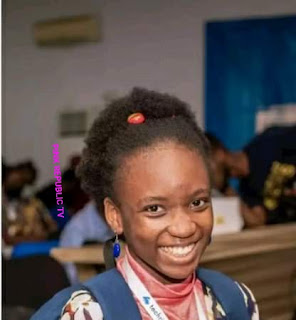14-year-old Nigerian girl unveils addiction recovery mobile app
For many years, experts maintained that only alcohol and powerful drugs could cause addiction. However, Neuroimaging technologies and more recent research have shown that certain pleasurable activities such as gambling, shopping, screen time and pornography also impair the brain.
Nobody starts out intending to develop an addiction, but recent research has proven that 1 in 3 people in the world has an addiction of some kind. Drug addiction alone has reached epidemic levels across the globe with Nigeria clocking around 14.3 million drug users of which 3 million suffered from a drug use disorder.
The colonisation of the brain by addiction manifests in three obvious ways: craving for the object of addiction, loss of control over its use and sustained involvement with it despite adverse consequences. This neuropsychological disorder has negatively caused an uprise in mental health-related issues and unproductivity among people, especially the youth. That’s why 14-year-old Port Harcourt girl, Deborah Folorunso developed BreakForth, a mobile application that helps users overcome any form of addiction.
According to the founder, the app helps users to remain accountable to their confidants throughout their recovery journey with the aid of a panic button feature in case of uncontrollable urges. The app keeps track of users’ progress and motivates them with daily quotes that help them abstain from their addictions. It also rewards addicts with rank badges as they successfully progress through their journey of abstinence. Folorunso’s solution addresses the UN Sustainable Goal 3: Good health and well-being.
At the recently concluded Tech for Good conference organised by Techrity in Port Harcourt, Folorunsho stole the show when she spoke extensively about the solutions her app brings to the fore.
She said: “From a survey I sent out for users’ feedback on the problem and my solution, 85 per cent of the users agreed they are currently suffering from at least one addiction. Over 50 per cent agreed that they have suffered or currently suffering from more than one addiction at the same time. This made me consider adding a feature for multi-addiction to the app. I plan to add a gamification feature to help the app to analyse the true state of an addict while having the user complete some activities. I also plan to add the multi-addiction feature for those suffering from more than one addiction.”
There are other existing sobriety apps like Iron Will, I am sober, and myAddictometer, but young Folorunsho’s app has a Panic Button that the user hits to alert his/her confidants of an uncontrollable urge for the addiction which makes her app very unique in fighting addictions. The basic features of the app will be free for users but the ‘Pro’ version, which will have the multi-addiction feature, will be available to users at an affordable monthly subscription fee.
Deborah Folorunso, a student of Hallel College in Port Harcourt, developed the BreakForth app with support from her mentor, Mr Somkenechukwu Mamah, who doubles as the founder of Code Ambassadors Academy, Port Harcourt.
Code Ambassadors Academy is an EdTech Start-up that inspires and equips children between the ages of 5-17 with tech (coding, robotics, Artificial intelligence, etc.), problem-solving, and critical thinking skills to solve societal problems. Deborah’s solution was highly commended by Mr Godwin Jimmy Akpabio, the CTO of Dantown, a fin-tech company based in Port Harcourt and one of the sponsors of the Tech for Good conference.
The Tech for Good conference, which was organised by Techrity in collaboration with other tech institutions, is an annual conference that aims to showcase the impact of using technology for social good in Africa.
Techrity, is a non-profit social enterprise, a community of people contributing to advance humanity through their time, money, and skills. They are all about inspiring the youth to take up careers in tech through their mentorships and kickstart programmes. (Courtesy, excluding headline, The Guardian)




Comments
Post a Comment